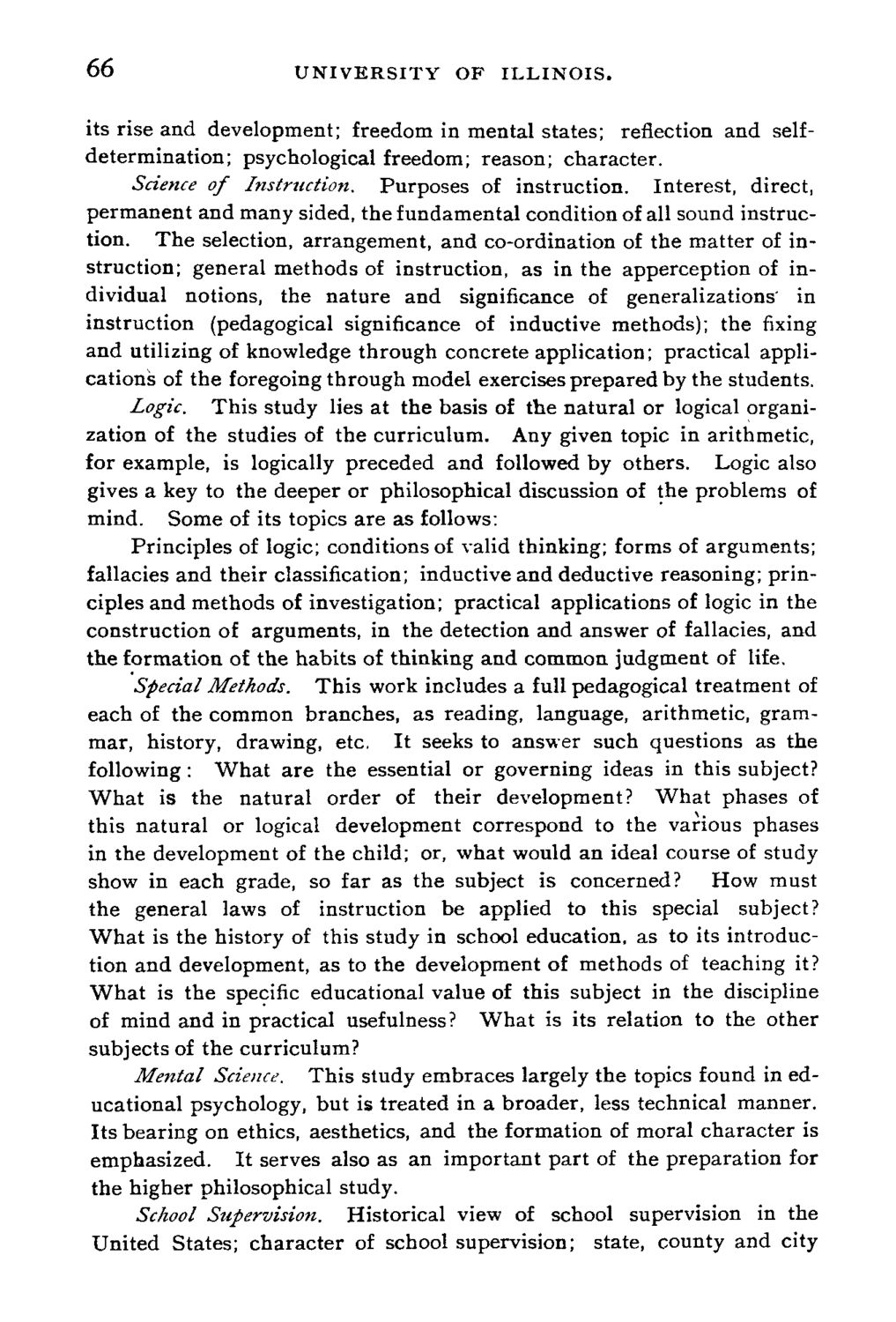| |
| |
Caption: Course Catalog - 1890-1891
This is a reduced-resolution page image for fast online browsing.

EXTRACTED TEXT FROM PAGE:
66 UNIVERSITY OF ILLINOIS. its rise and development; freedom in mental states; reflection and selfdetermination; psychological freedom; reason; character. Science of Instruction. Purposes of instruction. Interest, direct, permanent and many sided, the fundamental condition of all sound instruction. The selection, arrangement, and co-ordination of the matter of instruction; general methods of instruction, as in the apperception of individual notions, the nature and significance of generalizations' in instruction (pedagogical significance of inductive methods); the fixing and utilizing of knowledge through concrete application; practical applications of the foregoing through model exercises prepared by the students. Logic. This study lies at the basis of the natural or logical organization of the studies of the curriculum. Any given topic in arithmetic, for example, is logically preceded and followed by others. Logic also gives a key to the deeper or philosophical discussion of the problems of mind. Some of its topics are as follows: Principles of logic; conditions of valid thinking; forms of arguments; fallacies and their classification; inductive and deductive reasoning; principles and methods of investigation; practical applications of logic in the construction of arguments, in the detection and answer of fallacies, and the formation of the habits of thinking and common judgment of life. Special Methods. This work includes a full pedagogical treatment of each of the common branches, as reading, language, arithmetic, grammar, history, drawing, etc. It seeks to answer such questions as the following : What are the essential or governing ideas in this subject? What is the natural order of their development? What phases of this natural or logical development correspond to the various phases in the development of the child; or, what would an ideal course of study show in each grade, so far as the subject is concerned? How must the general laws of instruction be applied to this special subject? What is the history of this study in school education, as to its introduction and development, as to the development of methods of teaching it? What is the specific educational value of this subject in the discipline of mind and in practical usefulness? What is its relation to the other subjects of the curriculum? Mental Science. This study embraces largely the topics found in educational psychology, but is treated in a broader, less technical manner. Its bearing on ethics, aesthetics, and the formation of moral character is emphasized. It serves also as an important part of the preparation for the higher philosophical study. School Supervision. Historical view of school supervision in the United States; character of school supervision; state, county and city
| |